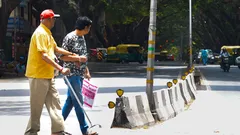
Have you ever questioned the legitimacy of a deal that sounds too good to be true through your favorite marketplace or online store? In recent years, there has been a rise in the number of scams, and more Pinoys are at risk of being scammed, often losing their money, time, and even their trust. With one of the country's most popular celebrities, Ruru Madrid, having a personal encounter with fraudsters, it's a strong reminder that even cautious customers can be deceived. Learn how to spot fraud before it's too late and always stay vigilant whenever you click "Buy Now."
Ruru Madrid's Close Call: A Modern-Day Lesson
Ruru Madrid, a well-known figure on TV and social media, recently shared that he almost fell victim to a scammer. He thought he landed a great deal on a high-end gadget, but realized in the nick of time that something was wrong. Anyone searching online for the lowest prices on gadgets or designer items can relate to this. Being alert is crucial, especially since statistics show that over 18,000 cases of online fraud were reported last year, affecting people of all ages across the Philippines.
Spotting Red Flags: How Scammers Lure Victims

Scammers often use tactics that play on the excitement of getting a huge discount. Watch out for offers that require immediate payment, sellers you can't verify, or products priced much lower than anywhere else. Beware of:
- First payment — Delivery later Legitimate sellers on Facebook groups or Shopee usually offer cash-on-delivery.
- No official reviews Make sure to read multiple, authentic-looking reviews before paying anything.
- Too-good-to-be-true deals If the price looks too low, there's probably a problem.
- Pushy sellers If they pressure you to buy or to hurry, double-check first before committing.
How to Secure Your Transactions
Safe online shopping isn't just about going with your gut. Use tools like verifiable seller badges and secure payment methods (e.g., GCash, PayMaya, or bank transfers only to known legit shops) and stick to official platforms. The Bangko Sentral ng Pilipinas has also rolled out stricter consumer protection rules. Always look out for these when trying a new app or site.
Nearly 18,000 online scams were reported nationwide in 2013, with financial losses ranging from a few pesos to hundreds of thousands. No one is truly safe from scammers, especially now that they're getting more sophisticated.
Quick Checklist: Protecting Yourself Online
- Check the seller's information before buying, especially on third-party platforms.
- Ask family or friends if you’re unsure. A quick message could save you a lot of trouble.
- Never share your One-Time Pin (OTP) or password, even if someone claims they’re from your bank.
- Choose cash-on-delivery or safe payment gateways.
- Remember, even small online shops from Divisoria or Greenhills have social media accounts. Check them to see if they’re legit.
If You Suspect a Scam: Act Fast
If something feels off, it's better to pause rather than risk losing money. Report suspicious sellers directly to the e-commerce platform or to government hotlines like 8888. This doesn’t just protect your finances and data — it can also save other Filipinos from falling for similar scams. A few moments spent safeguarding yourself can make all the difference.
I’ve done my fair share of online shopping, and there were times when a bargain price almost made me buy without asking questions. Honestly, seeing someone like Ruru Madrid almost get scammed really hit home. It reminded me that, no matter how tech-savvy or busy we've become, taking time to check the seller and use secure payment options is always worth it. Sometimes, excitement can cloud your judgment, and pausing — even just for a moment or two — can save you from regret.
With online shopping now a part of daily Filipino life, it’s more important than ever to stay alert against scams. Following effective scam prevention tips won’t just protect your own purchases — it helps make the online marketplace safer for everyone. For those looking to avoid fraud while shopping online in the Philippines, these small steps can give you peace of mind whenever you check out.
 Meg Magazine
Meg Magazine



Comments